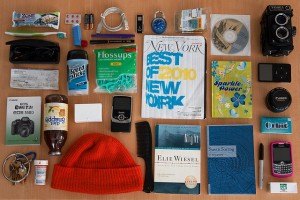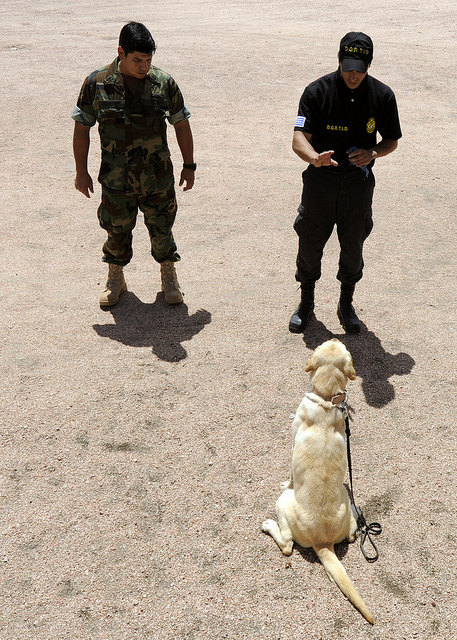The Ministry of Education has released guidelines regarding schools searching students and confiscating their property. The Education Act doesn’t specifically give schools the power to search and the issue hasn’t come before a New Zealand court before, so the guidelines really are just that. It’s possible though that courts would say that searching is an implied power under the general umbrella of a board having “complete discretion to control the management of the school as it thinks fit.”
On the other hand, it could be argued that as significant privacy issues are involved and that the power of search is not specifically given to schools that such searches are not lawful.
The protection from unreasonable search and seizure comes from the New Zealand Bill of Rights Act:
“Everyone has the right to be secure against unreasonable search or seizure, whether of the person, property, or correspondence or otherwise.”
Risk to safety
 These three words form the basis of the guidelines. The item being searched for must pose a risk to safety.
These three words form the basis of the guidelines. The item being searched for must pose a risk to safety.
“Risk to safety means that there are reasonable grounds to suspect that students or staff are at risk of harm from an item that poses an immediate or direct threat to physical or emotional safety.”
I interpret an item posing an immediate or direct threat as one when the student possessing it has an intention to use it right now. In the examples attached to the guidelines, staff involved consider “whether there is an imminent risk to the physical or emotional safety of students or staff …”
I struggle to think of an example where a dangerous item is all at once: not visible (because if it was visible, no search would need to take place), is about to be used, and where it would be a good idea to start trying to search the student rather than try to deescalate the situation so the item isn’t pulled out.
A common sense approach!
So basically, instead of taking the student away from others and getting the police involved to begin with, school staff should involve themselves with dangerous or illegal items, potentially escalating a volatile situation. And of course, the student that won’t willingly hand over an item they’re suspected to have will obviously be happy to comply with an intrusive and legally questionable search.
Violate rights, tell parents later
“Except in exceptional circumstances you should inform parents or caregivers after a search has been conducted (if you have not already contacted them).”
No. Parents should be contacted first, always.
Diaries, mobile phones, and laptops
The guidelines mention searching correspondence under the definition of a search. They state that this would include “written and electronic material (e.g. in a diary, on a mobile phone or on a laptop).” None are mentioned again in the guidelines, except for a laptop in a weak example (see below).
This gives the impression that a diary, mobile phone or laptop could theoretically be searched in accordance with the “imminent risk of physical or emotional harm” criteria. Cue alarm bells. How that criteria could be construed as applying to electronic devices and diaries potentially containing very private material is beyond me.
Lukewarm examples
There is no strong scenario provided with the guidelines where a search should actually be conducted.
Scenario 1: Pornography on a laptop. Example correctly concludes that a laptop isn’t a threat if it’s not turned on and so shouldn’t be searched.
Scenario 2: Students caught smoking marijuana say they were sold it by another student. No search because police have to be called because of the illegal items potentially involved.
Scenario 3: Students are lighting deodorant on fire. Friends of a student hand over their lighters. Student is suspected to still have a lighter. Example says that there is an imminent risk to the physical or emotional safety of students or staff in this situation because “a student could easily be burnt if the activity continues.” Imminent risk, really?
Concludes that “as the risk is significant it is likely that the search should – if it safe to do so – be conducted.” I say education would be better than a search. There’s nothing stopping the student from bringing another lighter the next day after he’s searched. Searching isn’t going to magically solve the underlying problem.
Scenario 4: Hearsay that a student is going to “get” another student and more hearsay about a “knife.” Student seems upset and angry, doesn’t stop when teacher asks him/her to. Example correctly concludes that searching straight away when a situation isn’t calm isn’t a good idea. Example says if staff conclude there’s an immediate risk to call the police. Tick.
Or if the situation isn’t considered an emergency: the student has calmed down, staff don’t feel threatened, they only think a small pocket knife is involved, staff can “proceed to consider … if a search is appropriate in the circumstances.” Except they can’t have it both ways. If the student is calm and wouldn’t use a knife if he/she had one (no imminent threat) then a search isn’t necessary. If the student would use a knife if he/she had one, then the police should be called.
Unnecessary and a breach of BORA
Vanushi Walters, YouthLaw solicitor speaks the truth. If the situation is serious enough for a search, it’s serious enough for the police.
“Search and seizure powers in schools are unnecessary and a breach of the Bill of Rights Act. She said the most appropriate course of action is for principals and teachers to call the police.”
Let’s make the guidelines law
But wait, there’s more.
“The Ministry was also looking in to possible legislative changes to give schools more support in what was ‘a complex legal area,’ she said.”
Give school staff equivalent or greater powers than the police have so they can search students? Okay!
You want to violate my privacy? You’ll have to put up a fight, I don’t consent to this search.
Image credit: Hello Turkey Toe


 These three words form the basis of the guidelines. The item being searched for must pose a risk to safety.
These three words form the basis of the guidelines. The item being searched for must pose a risk to safety.